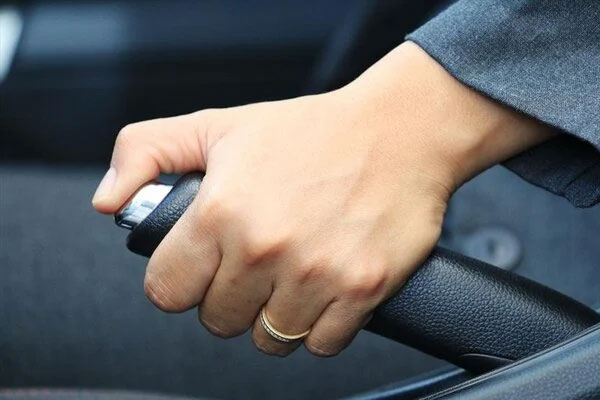Here are three cases where you should never use the handbrake.
There are certain situations where using the handbrake, also known as the emergency brake, can be beneficial. This is when you are parking and in emergency situations, especially when the foot brake is frequently faulty or not functioning properly.
In addition, there are other situations where you may need to use the handbrake, such as during car maintenance.
When your car is being serviced, it is advisable to use it to “relieve stress from the transmission”. It can also keep you and the mechanic safe during the maintenance process.
You can also use the handbrake when you or someone else is changing a car tire, as it will prevent the wheels from spinning.
 Illustrative image
Illustrative image
Avoid using the handbrake in snowy or rainy conditions
There are three cases in which drivers should not use the handbrake, and two of them are weather-related.
If you use the handbrake in snowy or rainy weather, it will cause the rear wheels to lock up, making it harder to control the car.
Drivers need to have good control of the car in unfavorable weather, so using the handbrake can lead to unforeseen disasters.
Avoid using the handbrake in freezing weather
Similarly, when it is extremely cold for an extended period of time, you should not use the handbrake, even for parking.
According to Reader Digest, the extremely low temperatures can cause the emergency brake cable to freeze. If it freezes, it will be impossible for the driver to release it.
Therefore, drivers should not attempt to drive in freezing conditions, as it will result in a loss of control.
If the weather is very cold with freezing snow, you can wait for the creases in the emergency brake cable to thaw, and then it will function normally again.
If the driver cannot wait, they can rev the engine and warm up the frozen brake cable with a hairdryer or similar tool.
Avoid using the handbrake when driving normally
When driving normally and nothing is happening, you should not use the handbrake. This is called “riding the brake” and it is an easy way to shorten the lifespan of your car. It will cause friction on the brake pads and lead to increased heat, which can boil the brake fluid.
If the brake fluid boils, it will not function properly, meaning your brakes will not work as intended.
Most people will press the brake while driving, as they will not use the handbrake. An easy way to prevent this issue is to not engage the handbrake while driving.
According to VTC
































